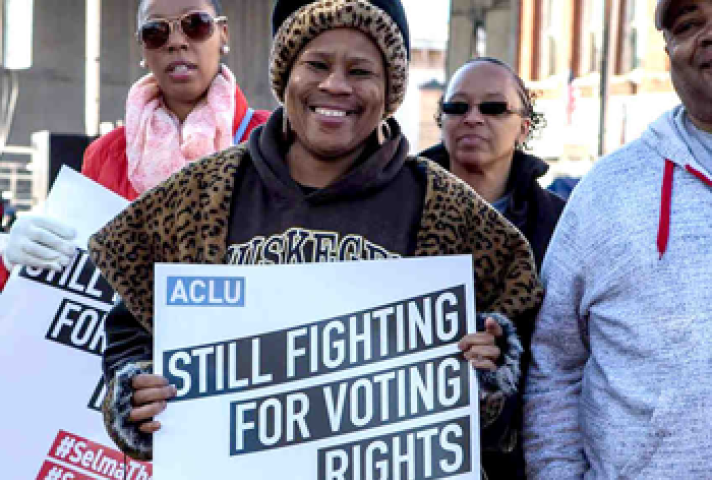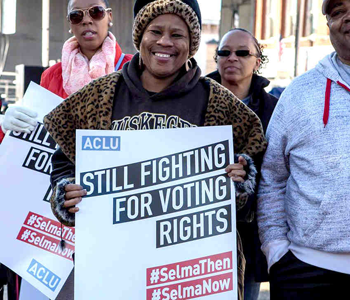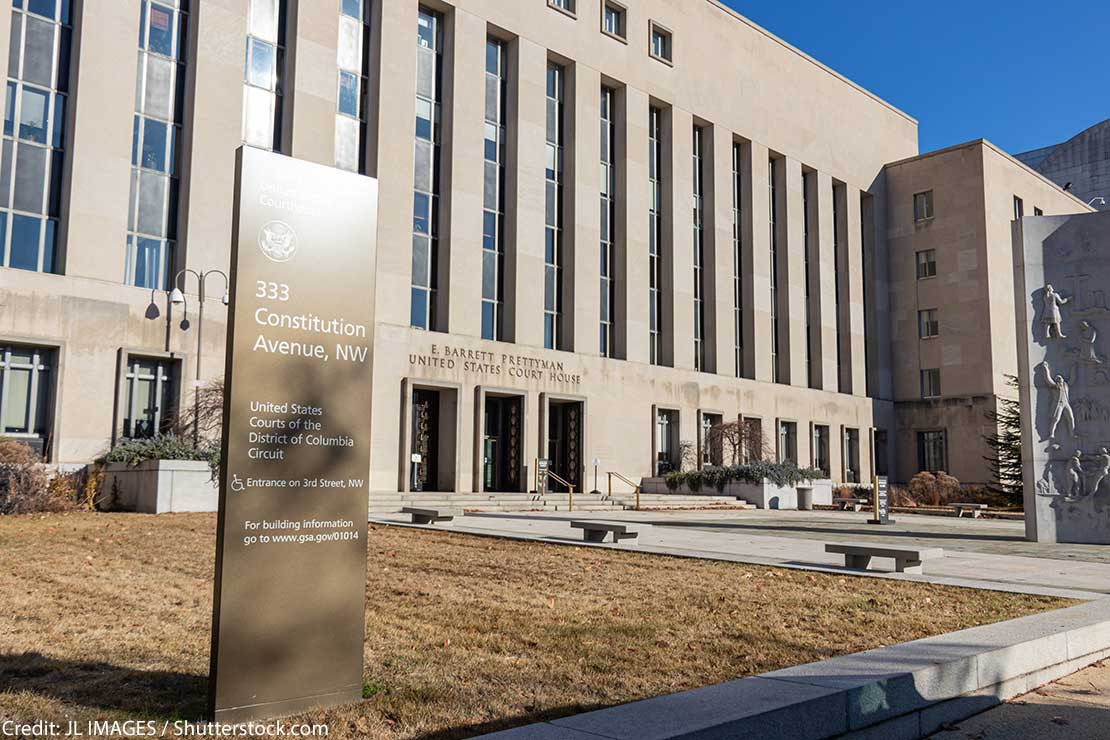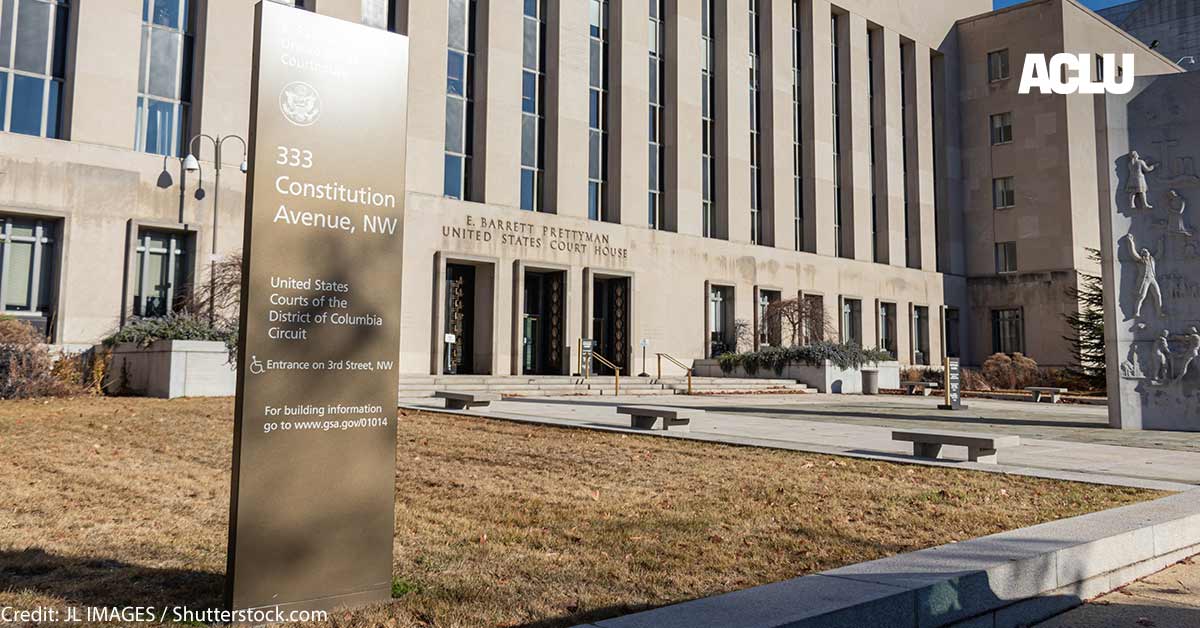Charlie Hogle, Fellow, National Security Project, ACLU
Alex Abdo, Former Senior Staff Attorney, ACLU Speech, Privacy, and Technology Project
For decades, a special court—the Foreign Intelligence Surveillance Court, or “FISC”—has issued secret legal opinions authorizing the U.S. government to conduct sweeping programs of electronic surveillance. These opinions have had a profound impact on Americans’ rights to privacy, free expression, and free association. But many of them are entirely hidden from public view.
Secret law undermines democracy and the legitimacy of the judicial system—especially when the law being withheld from the public affects the rights of millions of people. So today, the ACLU is asking the Supreme Court to order the FISC to publish its secret opinions, redacted only as necessary to prevent genuine harm to national security. The petition—filed by ACLU lawyers, former Solicitor General Ted Olson, the Knight First Amendment Institute at Columbia University, and the Media Freedom and Information Access Clinic at Yale University—argues that the First Amendment gives the public a presumptive right of access to significant judicial opinions, including those of the FISC.
Today’s Supreme Court petition has its origins in the disclosures made by Edward Snowden, which exposed profound changes in the role of the FISC in overseeing government surveillance. In 2013, journalists working with documents provided by Snowden reported that, in the years after 9/11, the FISC had secretly authorized the NSA to engage in bulk surveillance. Days later, the ACLU and co-counsel filed a motion in the FISC seeking access to opinions that had authorized the NSA’s bulk collection of telephone call records. And in 2016, after the breadth of the FISC’s secret law had become even clearer, we filed another motion asking for access to the court’s opinions addressing novel or significant issues raised by the government’s surveillance applications.
The FISC operates behind closed doors and does not customarily publish its decisions. Although Congress required the government to review significant FISC opinions for declassification and public release when it passed the USA FREEDOM Act in 2015, that review is conducted solely by executive branch officials, not a court. In addition, the government has refused to apply this requirement to FISC opinions issued prior to June 2015.
Publication of the FISC’s opinions is crucial to public understanding of the nation’s surveillance laws. The FISC has interpreted those laws in deciding the legality of novel and sweeping surveillance programs, including the government’s warrantless and suspicionless searches of private emails; the government’s bulk collection of internet and telephone metadata; and the government’s surreptitious installation of malware. As long as the FISC’s opinions remain secret, it’s impossible to know the full extent to which our surveillance laws have permitted intelligence and law-enforcement agencies to collect information on Americans’ communications and activities.
But last year, the FISC held that because it is a specialized court that deals mainly with issues related to national security, the public has no First Amendment right to view its opinions—even major ones that affect fundamental liberties. Months later, both the FISC and its special court of appeals—the Foreign Intelligence Surveillance Court of Review (FISCR)—adopted an even more extreme position, holding that they lack jurisdiction even to consider First Amendment motions like the ones we filed.
As we argue in our petition, the FISC and FISCR were wrong about the First Amendment. Our legal system is founded on the presumption that laws are public. That presumption applies to all judicial opinions containing significant interpretations of law. There’s no special exception for opinions involving government surveillance and national security. In fact, federal courts around the country routinely publish opinions on those very topics. The FISC’s significant opinions, which affect the rights of millions, are no different. Like all courts, of course, the FISC may redact its opinions when necessary to conceal legitimate national security secrets. But to justify these kinds of redactions, the government must satisfy the First Amendment’s stringent standards.
The FISC and FISCR were also wrong about their jurisdiction. Courts around the country routinely consider First Amendment motions for access to their records—motions just like the ones we filed in the FISC. This makes sense. All courts created under Article III of the Constitution, including the FISC and FISCR, have inherent authority over their own records. If they didn’t, they wouldn’t be able to function properly, because they could not manage their own proceedings or ensure public access to the judiciary’s central work—its legal opinions.
Federal courts have uniformly held that because they have inherent authority over their own records, they can decide motions for access to those records. The same is true of the FISC and FISCR. They may be more specialized than most courts, but their inherent control over their own opinions gives them the power to consider motions for public access. This was the FISC’s own position until it reversed course in September 2020.
By placing its opinions outside the reach of the First Amendment, the FISC has deprived the public of information that’s vital to understanding how the FISC has interpreted the law, and the government surveillance that it has authorized. The Supreme Court must right this ship. The First Amendment gives the public a presumptive right to know how the FISC has shaped the nation’s laws and our liberties, and it’s time for the Supreme Court to enforce that right.
This piece was originally published by Just Security.
https://www.aclu.org/news/free-speech/the-public-should-have-access-to-the-surveillance-courts-opinions
Decisions related to the surveillance of Americans should not be kept hidden from the public.





